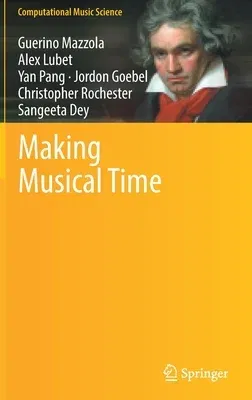Guerino Mazzola
(Author)Making Musical Time (2021)Hardcover - 2021, 16 November 2021

Qty
1
Turbo
Ships in 2 - 3 days
In Stock
Free Delivery
Cash on Delivery
15 Days
Free Returns
Secure Checkout

Part of Series
Computational Music Science
Print Length
265 pages
Language
English
Publisher
Springer
Date Published
16 Nov 2021
ISBN-10
3030856283
ISBN-13
9783030856281
Description
Product Details
Book Edition:
2021
Book Format:
Hardcover
Country of Origin:
NL
Date Published:
16 November 2021
Dimensions:
24.13 x
20.32 x
1.78 cm
ISBN-10:
3030856283
ISBN-13:
9783030856281
Language:
English
Location:
Cham
Pages:
265
Publisher:
Series:
Weight:
498.95 gm